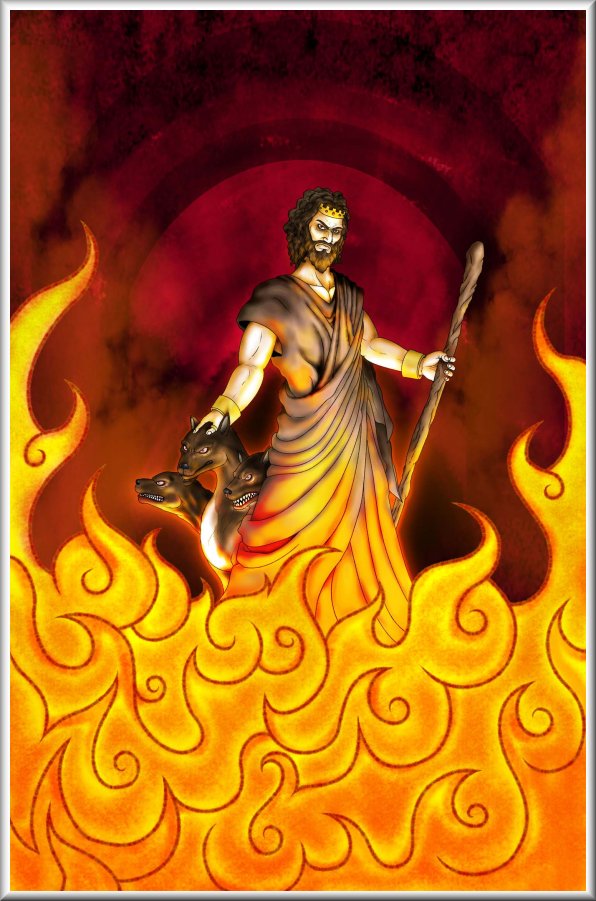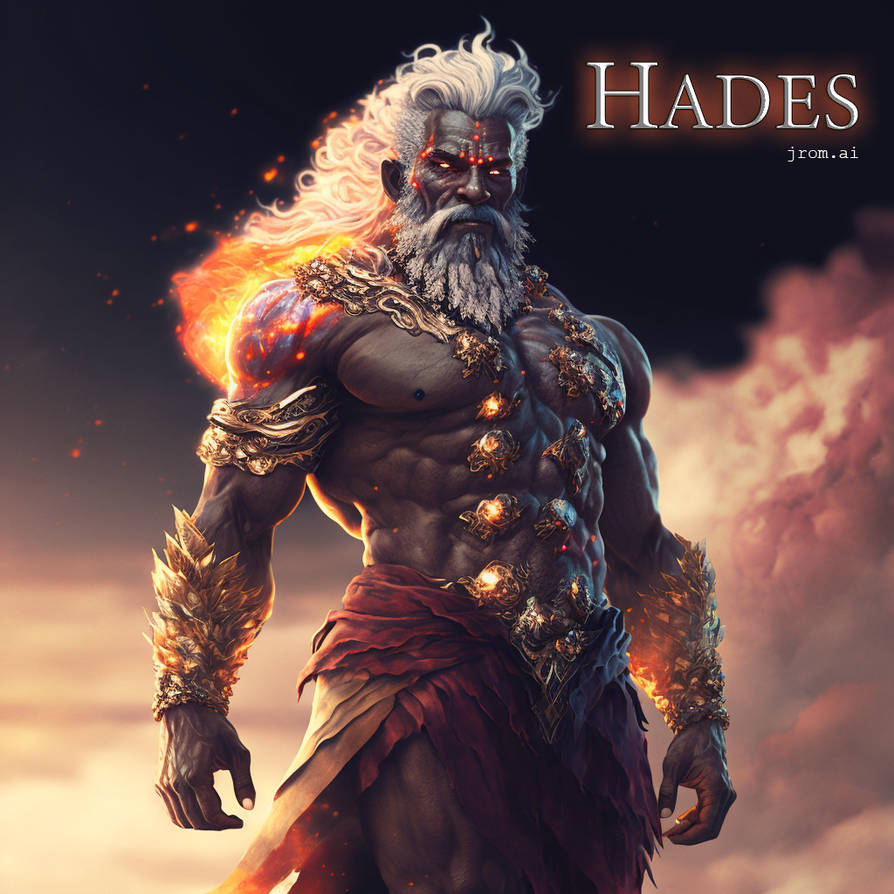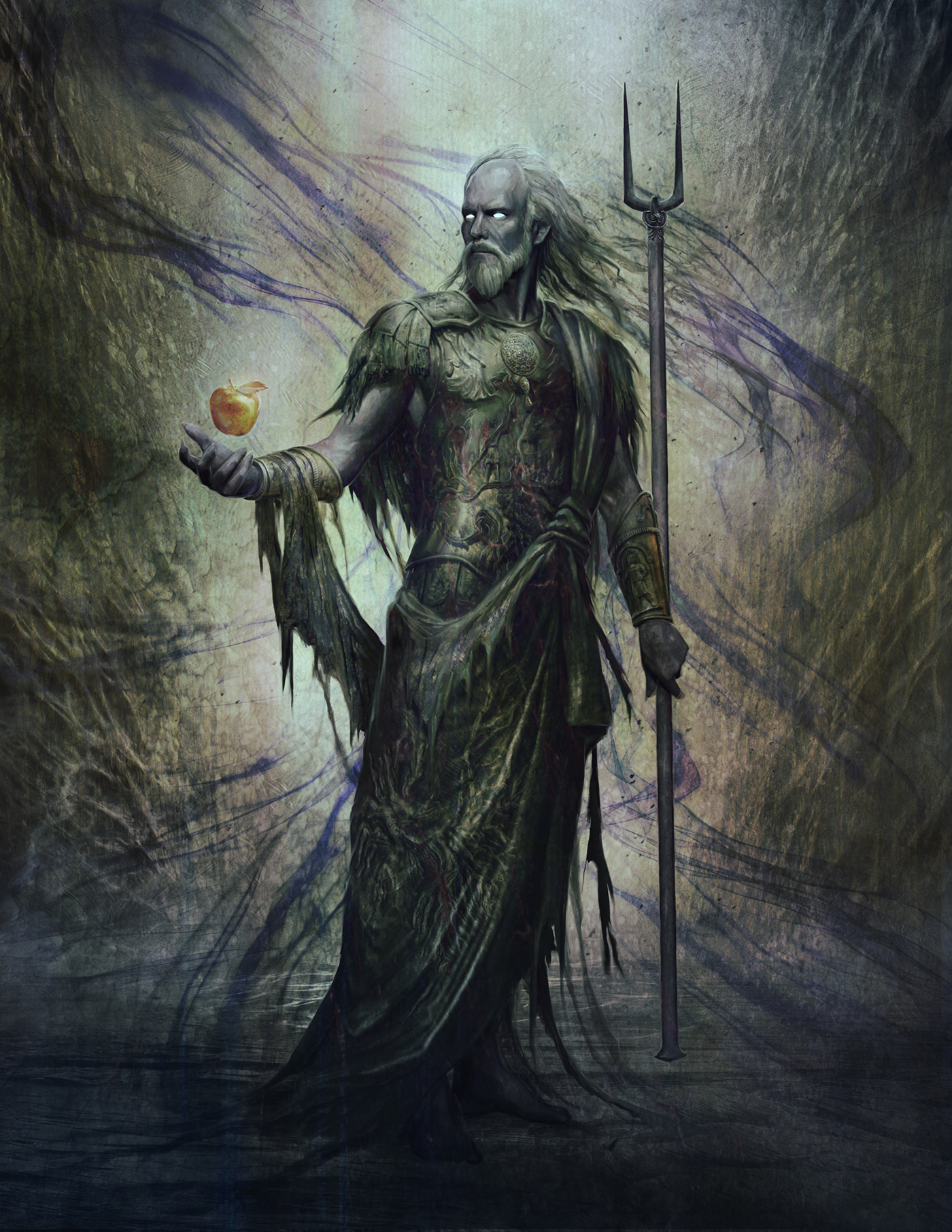Hades - Lord Of The Underworld And Ancient Myths
Have you ever stopped to think about the stories that have shaped our collective imagination for countless generations? It's almost as if these ancient tales, full of powerful figures and dramatic events, keep finding new ways to show up in our lives, whether it's through books, movies, or perhaps even a passing mention in everyday conversation. There's a curious pull to these old narratives, a sense that they hold something timeless, something that speaks to us across the ages.
One figure who definitely commands attention from these old stories is Hades. You might recognize the name, and that's because, well, he’s a pretty significant character from ancient Greek beliefs. People have been talking about him for a very, very long time. His name often brings to mind a certain place, a deep, shadowy part of the world, and for good reason, too. He was, as a matter of fact, deeply tied to that particular place.
So, while some folks might be wondering about more recent connections to figures like Hades, maybe even thinking about actors who have portrayed him or their family lines, it’s really helpful to first get a good sense of the original character. We can look at what the old stories tell us about him directly. This way, we can appreciate the foundation of his being before we think about how his story might, you know, live on in different ways.
Table of Contents
- A Look at Hades' Mythological Roots
- Personal Details - What We Know About Hades' Being
- What Role Did Hades Play in the Cosmos for his Hades Actor Descendants?
- The Underworld's Ruler and His Influence on Hades Actor Descendants
- Hades' Family Connections - Who Was Around Him?
- How Did Family Dynamics Shape Hades Actor Descendants' Stories?
- Famous Encounters and the Legacy of Hades Actor Descendants
- What Challenges Did Hades Face, and How Do They Inform Hades Actor Descendants' Narratives?
- The Underworld's Inhabitants Beyond Hades
- Who Else Called Hades' Domain Home, and What Does This Mean for Hades Actor Descendants?
A Look at Hades' Mythological Roots
When we talk about Hades, we are, basically, talking about the personification of a significant force in ancient mythology. He was, above all else, seen as the god connected with the end of life. His primary duty, you know, involved overseeing the place where spirits went after they left the world of the living. This deep connection meant that his very name became, in a way, interchangeable with the place he governed. People would say "Hades" and they often meant the underworld itself, which is pretty interesting, if you think about it. It shows just how much he was identified with his domain. He wasn't just a figure; he was the very essence of that dark, subterranean world.
Personal Details - What We Know About Hades' Being
While we don't have, like, a birth certificate for Hades, we do have quite a bit of information about his mythological identity. He was, you see, a very important member of a very powerful family. His parents were Cronus and Rhea, who were, in fact, incredibly ancient beings themselves. This means he was part of the original set of powerful figures who came before the Olympian gods we often hear about. He was, actually, one of several siblings who would eventually become some of the most recognized deities in the Greek stories. His home, naturally, was the underworld, a place he ruled with a firm hand. He also had a partner, Persephone, who became the queen of his domain. So, in a way, his story is really intertwined with this specific place and the beings who lived there, or who visited.
| Aspect | Description |
|---|---|
| Name | Hades |
| Main Role | God of Death, Ruler of the Underworld |
| Other Important Role | God of Wealth (often associated with Pluto) |
| Parents | Cronus and Rhea |
| Siblings | Zeus, Hestia, Hera, Demeter, Poseidon |
| Spouse | Persephone |
| Primary Residence | The Underworld |
| Notable Mythological Connections | Heracles (an adversary), Erinyes (dwellers in his domain), Charon (the ferryman) |
What Role Did Hades Play in the Cosmos for his Hades Actor Descendants?
Beyond his primary connection to death and the underworld, Hades actually had another important side to him. He was, in some respects, also seen as a god of great riches. This might seem a little odd at first, connecting the ruler of the dead with wealth, but if you think about it, all the precious metals and jewels come from deep within the earth, which is, well, his territory. Over time, this specific aspect of his character started to become, you know, a bit more distinct. It eventually merged with another figure, Pluto, who was also a lord of the subterranean world. So, in a way, Hades became tied to the hidden treasures of the earth, not just the spirits of the departed. This double role gives his character a bit more depth, really, showing that he wasn't just about darkness, but also about the valuable things found beneath the surface.
- Monsters Cast Menendez Brothers
- Gladiator Original Movie
- Judge Gerald Sheindlin
- Ashley St Clair And Elon Musk
- How Did Raygun Qualify For The Olympics
The Underworld's Ruler and His Influence on Hades Actor Descendants
As the primary overseer of the underworld, Hades held a very significant position in the ancient cosmos. His authority there was, basically, absolute. It was his job to ensure that things ran smoothly in the afterlife, that the boundaries between the living and the dead were respected. His influence, you know, wasn't just confined to the spirits; it also extended to the very landscape of his domain. He was, in essence, the ultimate authority figure in a place that every soul would eventually visit. This kind of influence, this deep connection to the cycle of life and what comes after, means his story carries a lot of weight. It's a fundamental part of how the ancient Greeks understood the world, and his decisions, like when he refused to let Heracles take Cerberus, had real consequences within those myths. It just goes to show how much power he held, even against the strongest heroes.
Hades' Family Connections - Who Was Around Him?
Hades wasn't some lone figure operating in isolation; he was, actually, deeply connected to a rather famous family of gods. He was one of the children born to the Titans Cronus and Rhea. This makes him a direct sibling to some of the most well-known deities in the Greek pantheon. His brothers included Zeus, the king of the gods, and Poseidon, the ruler of the seas. His sisters were Hestia, Hera, and Demeter. So, you see, he was part of the original set of powerful gods who eventually overthrew their father, Cronus. This family dynamic is, in some respects, pretty crucial to understanding Hades' place in the wider mythological framework. It means he had a shared history and, well, a shared struggle with his siblings, even if his own domain was separate and often quite solitary.
How Did Family Dynamics Shape Hades Actor Descendants' Stories?
The relationships Hades had with his family members really shaped many of the stories he was involved in. For example, his sister Demeter was, naturally, the mother of Persephone, who eventually became Hades' wife and the queen of the underworld. The most famous story involving Hades, in fact, tells of how he took Persephone to be his bride. This event, basically, caused a huge upset among the gods, especially for Demeter, who was very, very distraught. It's a story that highlights the power dynamics within the family, and how Hades' actions, even if justified in his own mind, had profound effects on those around him. The interactions with his siblings, like Zeus, who forced Cronus to give them back after being swallowed, show a complex web of alliances and rivalries that, you know, defined their mythological lives. These family ties were, in a way, central to who Hades was and what he did.
Famous Encounters and the Legacy of Hades Actor Descendants
Hades, despite his somewhat solitary existence in the underworld, certainly had his share of memorable encounters with other figures from myth. One story that really stands out, for instance, involves the mighty hero Heracles. Heracles, as a matter of fact, had a task that required him to go down into the underworld and bring back Cerberus, the multi-headed guard dog. Hades, being the ruler of his domain, was, quite simply, not about to let this happen without a fight. The story tells us that even after Heracles managed to overpower Cerberus without using any weapons, Hades still refused to hand the creature over. This led to a pretty intense confrontation, where Heracles, feeling quite justifiably angry, actually shot Hades with an arrow. This kind of direct conflict with a hero shows that Hades was a force to be reckoned with, not just a passive ruler. It adds a bit of drama to his character, really, highlighting his protective nature over his territory.
What Challenges Did Hades Face, and How Do They Inform Hades Actor Descendants' Narratives?
Hades, like any powerful figure, faced his own unique set of challenges. His role as the ruler of the underworld meant he had to manage a rather, well, diverse population of spirits and even some truly ancient beings. The incident with Heracles, for example, shows him directly defending his domain against an intruder, which is a pretty big challenge for any ruler. He also had to deal with the complexities of his family, particularly the abduction of Persephone, which, you know, caused a major cosmic disturbance. These challenges, these moments of conflict and decision, really paint a picture of a god who was constantly asserting his authority and maintaining order in a very, very sensitive part of the cosmos. They show that his life, even as a god, was not without its difficulties and confrontations, which makes his stories, in some respects, quite compelling.
The Underworld's Inhabitants Beyond Hades
While Hades was, naturally, the supreme authority figure of the underworld, he was by no means the only resident. His vast domain was, as a matter of fact, home to a number of other deities and significant figures, some of whom were respected, and others who were, well, greatly feared by the people of ancient times. It wasn't just a desolate place; it was a functioning society, in a way, with its own set of rules and its own cast of characters. These other inhabitants helped to define the character of the underworld and contributed to the overall sense of its mystery and its power. Their presence meant that Hades, while at the top, was part of a larger system, a complex network of beings who all played a part in the afterlife's operations. It gives a fuller picture of what that shadowy world was like, really.
Who Else Called Hades' Domain Home, and What Does This Mean for Hades Actor Descendants?
Among the most prominent figures sharing the underworld with Hades was, of course, his own queen, Persephone. As his wife, she held a significant position alongside him, adding another layer to the governing structure of the underworld. Then there was Charon, the ferryman, who played a very practical and, you know, essential role in the journey of souls. He was the one responsible for transporting the departed across the rivers that separated the living world from the dead. Furthermore, the underworld was also the dwelling place of the Erinyes, sometimes known as the Furies. These beings, born from the blood of Uranus, the primordial sky god, were often thought to reside in this deep, dark place. They were, basically, agents of vengeance, ensuring that justice was served for certain terrible deeds. Even Tartarus, a dark, primordial landscape even deeper than Hades' usual domain, housed a few sinners and those who were hated by the gods, like the defeated foes Zeus cast down there. So, you see, the underworld was a rather crowded and, you know, fascinating place, full of different kinds of beings, each with their own part to play in the grand scheme of things.
- Rick Astley
- Nate Berkus Fernando
- American President Assassinations
- When Does Rick Come Back In Twd
- Who Died Today Famous

Myth Man's Hades, god of the Underworld

Hades by jrom-ai on DeviantArt

Hades by JasonEngle on DeviantArt